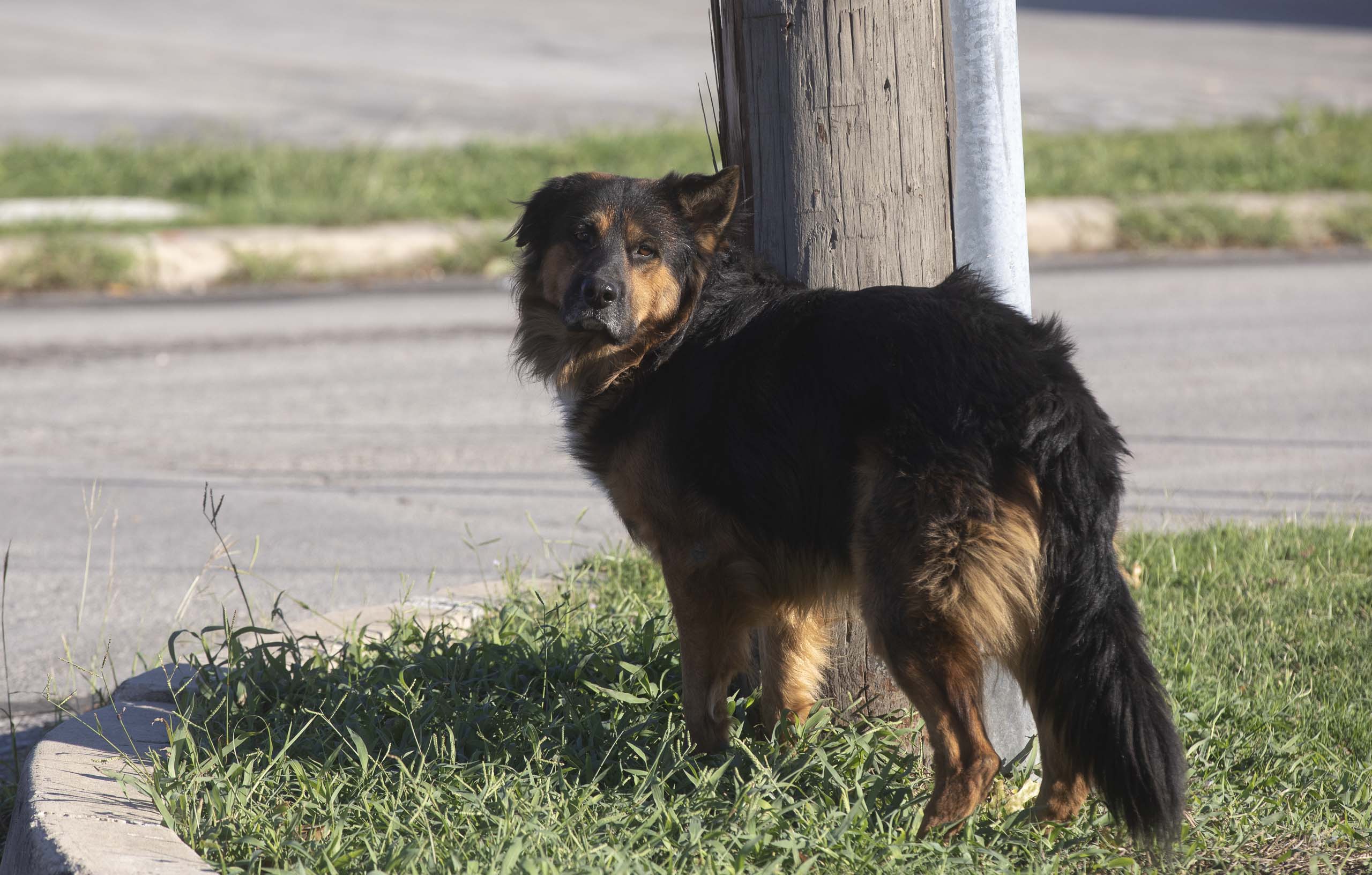San Antonio will now assess a fine of at least $1,000 to dog owners who fail to prevent their pet from biting someone.
The city is also raising fees for dog owners who allow their dogs to roam free of restraint, and it’s laying the groundwork to start sterilizing dogs that are picked up off the street before they’re returned to their owners.
“We need to change the culture of dog ownership in San Antonio, so we’re going to be increasing fines for negligent dog owners,” said Councilwoman Marina Alderete Gavito (D6), who set the wheels in motion for the new policies back in May. “If you don’t want to pay such fines, then don’t let your dogs get out.”
The council voted unanimously to approve the changes on Thursday, meaning they can be enforced immediately.
Some city leaders have been hesitant to levy higher fines on a public that don’t seem widely aware the city’s dog ordinances, and who might not be able to afford the charge.
But they’re desperate to cut down on public fear of dog attacks, after a string of deadly dog maulings in San Antonio.
“It’s the irresponsible dog owners in San Antonio who have brought us to this point of having to make these difficult decisions, of increasing these fines and forcing us to double down on our efforts to do what they refuse to do, which is take care of their dogs,” said Councilman Manny Pelaez (D8).
Changes the council approved will largely be up to a new Animal Care Services director to enforce.
The department has been under interim director Michael Shannon since last summer, but a new permanent director will take over the department starting Dec. 30.
Dog bite fines in San Antonio
Under the new policies, if a pet owner violates the city’s code for failing to prevent a bite, they’ll be fined at least $1,000 for the first offense.
Sec. 5-150 (3) of the city code says “the owner or keeper shall prevent his or her animal from biting or injuring without provocation, any animal or person.”
Municipal court judges ultimately determine the fine based on the severity of the violation. The minimum fine was previously set at $100 for the first bite, $200 for the second and $300 for subsequent bites.
Going forward, the fine for second offense will be placed at $1,500, and $2,000 for all subsequent offenses.
Animal Care Services will still have to track down the animal’s owner to enforce the code violation. The department does so by seeking information from people who report a bite, as well as health care professionals who treat people who are bit.
“We’ve been given more officers over the past couple years to get to more calls for service, to pick up more loose, aggressive or dangerous dogs,” Shannon said after Thursday’s vote. “That is part of the story. We need better tools, stronger tools, like what we just passed today.”
The department still has some discretion over what qualifies as “failure to prevent a bite.” Factors like whether the dog was on a leash or whether it was provoked, can be taken into account.
“If your dog bites another person and you’re negligent, meaning you did something, you let it out free of restraint — that’s usually the situation — or you let it walk with you down the street without a leash, those are the types of things where we will issue that citation,” Shannon said.
“Where we wouldn’t possibly issue it is if you were at home and it’s your dog and you’re playing with it, and it accidentally bites you.”
Cracking down on roaming dogs
Other increased fines seek to prevent pet owners from allowing their dog to live outside, or from walking their dog without a leash.
The first time the owner is caught, the fee will remain at $100. But the second offense will cost $500, and subsequent offenses will cost $750.
Previously, the fines for second and third instances were set at $200 and $300.
The fees stack on the owner, not the pet, meaning a pet owner with multiple dogs could receive a second violation for a different animal than the one they were cited for the first time, Animal Care Services Spokeswoman Lisa Norwood said.
Mandatory sterilizations
The city is also trying to bring its spay/neuter policy for roaming pets into alignment with Texas’ other cities, by making sure that animals picked up by Animal Care Services are either sterilized before being returned to their owner, or within 30 days of being released.
During the 2024 fiscal year, the department projected that approximately 4,800 impounded pets would be reclaimed by their owner without having been neutered, because the city didn’t have the capacity to perform the surgeries itself.
The city still doesn’t have that ability, but is working on a new animal hospital for Animal Care Services, and plans to open two community clinics in early 2025.
The long-term goal is to sterilize all animals that are picked up off the street before returning them to their owners, Shannon said.
But in the meantime, the city will start strictly enforcing the 30-day spay/neuter requirements for owners who claim an animal that’s been impounded.
Reporting dangerous dogs
People who seek to report dangerous dogs in San Antonio will now also be able to use a pseudonym program to protect their identity when filling out the Dangerous Dog affidavits.
That form starts the process for designating a dog as dangerous.
If an owner wants to keep a dog that’s been designated dangerous, the animal must be licensed, wear a special identification collar, be kept in a secure enclosure, be muzzled when outside, be microchipped and sterilized. The owner’s home will also be listed on a public registry.
Alderete Gavito said that by allowing people to file the affidavit without their name, they won’t have to fear retribution from the owner.
If the case goes to court, however, the accuser will eventually be named.
State Sen. José Menéndez (D-San Antonio) said at a press conference Thursday that he was pursuing legislation at the state level to ensure the names of accusers never have to be revealed.
After an affidavit is filed, it’s up to Animal Care Services to investigate and determine whether the dog is indeed dangerous.
“This isn’t about barking dogs late at night, nuisance dogs. This is about dangerous dogs,” Menéndez said. “We’re not trying weaponize the ability for people to try to just turn each other in because they don’t like the neighbor’s dog.”
Source link https://sanantonioreport.org/if-your-dog-bites-someone-in-san-antonio/


